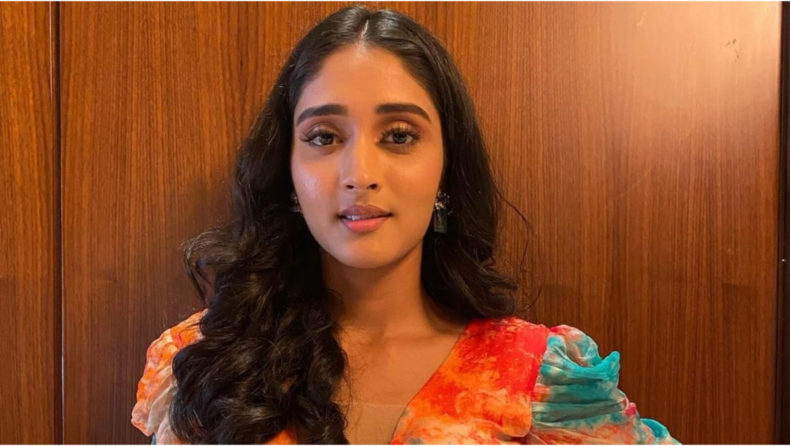
Smrithi Srikanth who made her debut recently shares stories about colorism with the media.
Smrithi Srikanth debuted in Akshay Kumar’s film Raksha Bandhan. Smrithi, who is from Delhi, plays Akshay Kumar’s sister Laxmi. The other three sisters of lead character Lala Kedarnath are played by Sadia Khateeb, Deepika Khanna, and Sahejmeen Kaur. Smrithi spoke exclusively to Hindustan Times about her dream debut in Akshay Kumar’s film and her thoughts on colorism in the twenty-first century.
Smrithi is a trained dancer who appeared with Aparshakti Khurana in the dance cover of Kudiye Ni. She got her big break in Bollywood with the Aanand L Rai film, which featured lines like ‘aamavas ki raat’ to define her dark-skinned character. Laxmi struggles to find a groom in the film because of her complexion. Is the film therefore regressive? “In real life, I have a dusky complexion.” “However, for the character, my skin was toned down two more levels,” Smrithi explained.
“Even I have faced comments on my complexion since childhood,” Smrithi said, using examples from her own life. People mocked and made fun of it.” When asked what drew her to the project, which may have highlighted the casual use of racist remarks, Smrithi quickly defended herself, saying, “When I was auditioning for this character, I read the lines and felt that it is the truth.” Some people say things like, ‘dhoop me mat ja kaali par jayegi (don’t go out in the sun or you’ll get tanned)’. They have this mindset. But, as a person, what I think of myself is far more important than what others think of me.”
“When I read the script, I liked the character because she is very confident in her own skin and colour.” Laxmi says in the film, “Black is back.” She is someone who adores her skin tone and is extremely content with herself. “Uske liye wo Kareena Kapoor hai,” she added.
Is there colorism in the entertainment industry, particularly among newcomers?
“Sometimes in auditions, they do categorise you based on your skin complexion,” she explained. During auditions, you may hear phrases like “we only want fair complexion” mentioned. But then I realise it has to be a character requirement.”
“However, I recall feeling very bad once while working on a modelling project.” There were some brand-related events. I auditioned for it and was chosen. The project had two parts, and I was assigned to both. Unlike me, the other girls were only chosen for one project. As a result, I requested that my pay be increased. But what I got from them was depressing. They responded that ‘they (the unnamed brand) do not hire dusky girls.’ They did, however, hire you. They will pay you less if you want to be a part of the project.’ They basically favoured fair-skinned women. “I literally felt bad that day, even though that it was 5-6 years ago,” she recalled.













